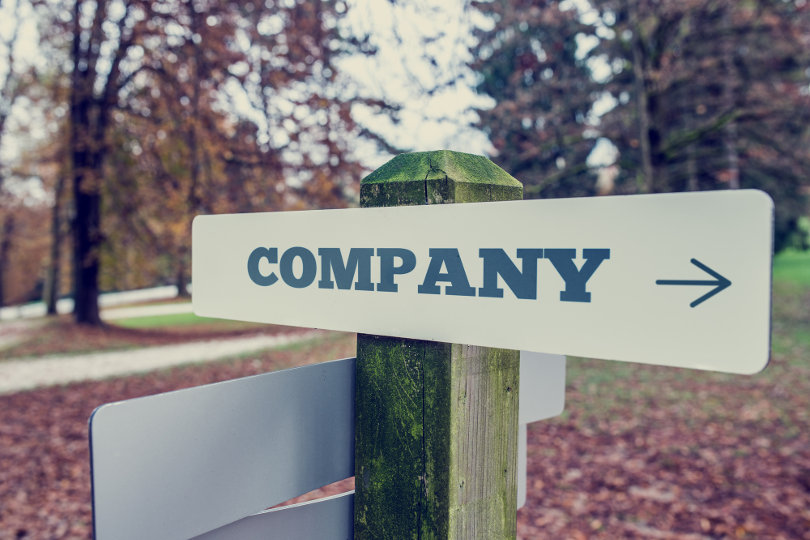This article will inform you about everything you need to know when looking to register a company name and/or structure for your newly formed business, including the advantages and disadvantages of the most common structures, giving you an indication to the structure best suited to you.

Register as a Sole trader
Registering as a Sole Trader is one of the most common and straightforward options for anyone looking to start their own business. It is often adopted by ‘lone’ businessmen and women such as Personal Trainers, Accountants, and Photographers, to name a few. You are registered as ‘self-employed’ when registering as a Sole Trader.
Despite the word ‘Sole’ in the title, you can still hire employees as you wish or need, as long as you follow rules and regulations surrounding this. As a Sole Trader, decisions made by the company (you) will take an instant effect, giving you the control over all decisions, rather than having to discuss and pitch to any Senior Management.
Advantages of registering your business as a Sole Trader are;
- It’s the easiest and most efficient way to set up a business
- No fees associated with registering, inexpensive to set up originally
- You own all income (after tax)
Although the advantages of setting up as a Sole Trader are quite attractive, there is also a substantial risk associated with registering this type of business. Disadvantages of registering as a Sole Trader are;
- Unlimited liability, you are responsible for the company. If the company fails, you must fund debts with your own personal money
- The death of the sole trader usually leads to the cessation of the business
- High tax rates, profits are taxed as income by HMRC, so once they surpass the lower tax band rate, you will have to pay the higher rate which ranges from 40% (over £41,865) – 45% (over £150,000)
Form a Partnership
A Partnership is seen as a step up from the Sole Trader business model. It occurs when there are two or more individuals involved in the building of the business, and they share all management and profits associated with the business. Like the Sole Trader, they are registered as self-employed.
There is an agreement set in place regarding liabilities, ownership, and profits of the business, and how they are assigned to each party of the business, including the protocol if one partner decides to leave the business. All partners are liable for debts associated with the business, and as with a Sole Trader, all income is taxed accordingly.

Register as a Limited Liability Company
Registering a Limited Liability Company (LLC), can be done through Companies House and offers credibility to the business. It will leave you in a position to request a loan of money when necessary.
These companies are typically owned by their shareholders and limited by shares. This means if the business fails or has financial problems, the face value (original price) they paid for their share in the business is all they are liable for.
The most noticeable difference between an LLC and Partnership is that a person(s) choosing to register as an LLC wants no personal liability associated with the company. An LLC is designed to separate the assets of the business from the personal assets of the owner(s), differentiating the owners personal assets from business assets.
Another advantage of this form of business structure is that the tax regime is favourable to your personal income, compared to setting up as a Sole Trader. Once you are in business, you are required to declare full statutory accounts and company tax returns to HMRC, while paying PAYE and NIC of your employees.
Before you can officially commence trading, you must register your company name and its officers, and submit the necessary documents to Companies House.
Registering a Limited Liability Partnership
The most recent business structure to impact the UK marketplace, a Limited Liability Partnership (LLP) is appropriate for ‘professional service’ companies. This form of business structure is a mix of both a Limited Liability company and a partnership, they offer the limited liability offered to shareholders in a Limited Company, along with the tax schemes and flexibility of offer when forming a Partnership.
Similar to registering as a Limited Company, the LLP structure protects its shareholders’ assets, giving them a limited liability to the company, the only aspect they are liable for is the share they invested in originally.
As with your typical Partnership structure, the shareholders profits are taxed as income. The LLP structure required you to register at Companies House and should state a mutual agreement including all parties listing the share of profit each member shall receive from the business.




